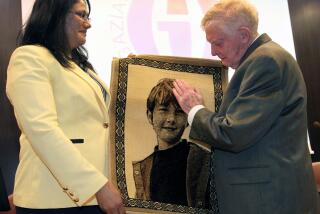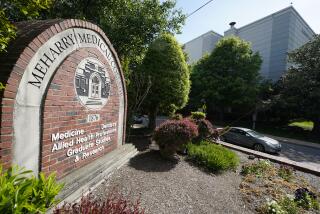3 Donors, 3 Recipients in Unique Kidney Swap
- Share via
PHILADELPHIA — Surgeons in Baltimore have performed what is believed to be the first “triple-swap” kidney transplant, giving healthy organs to two adult women and a teenage boy, health officials said Friday.
The recipients were dialysis patients who had each come to Johns Hopkins Comprehensive Transplant Center along with a willing donor who was not of a compatible blood or tissue type.
That meant the transplants could not be carried out because the intended recipients would reject the mismatched organs.
But the transplant team realized that all three patients could receive a compatible kidney if they swapped organs among the pairs.
Officials at Johns Hopkins said the 11-hour surgical procedure took place Monday. It involved six operations performed simultaneously in different operating rooms, each staffed by two surgeons, two anesthesiologists and two nurses.
Nurses rushed the newly removed kidneys from donors to recipients in labeled coolers under a Johns Hopkins program called “kidney matcher.”
In the end, new kidneys went to Jeremy Weiser-Warschoff, 13, of Silver Spring, Md.; Tracy Stahl, 39, of Johnstown, Pa.; and Germaine Allum, 30, of Coral Gables, Fla. All three had been on dialysis.
The donors were identified as Julia Tower, 57, of Hyattsville, Md.; Connie Dick, 41, from Latrobe, Pa.; and Paul Boissiere, 30, of Coral Gables, Fla.
The donors and recipients met for the first time Friday. All are reported to be doing well.
“We each have a piece of each other inside us,” recipient Allum said through tears at a hospital news conference.
More than 55,000 U.S. patients are on a nationwide waiting list for kidneys, according to the Richmond, Va.-based United Network for Organ Sharing.
Dr. Terry Strom, a professor of medicine at Harvard Medical School, said the surgeries were the first such simultaneous transplants he had heard of.
“It is unusual, indeed. There’s an enormous shortfall in kidneys available for people in need,” Strom said.
More to Read
Sign up for Essential California
The most important California stories and recommendations in your inbox every morning.
You may occasionally receive promotional content from the Los Angeles Times.










